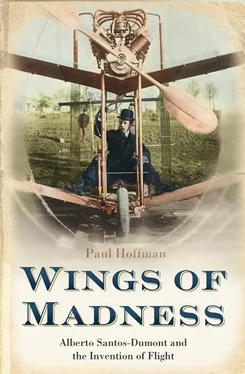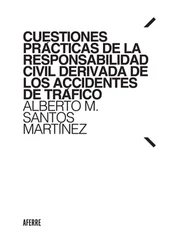[CHAPTER 1] ARRIVAL MINAS GERAIS, 1873
IN THE LATE eighteenth century, the professional class in Brazil was chafing after three hundred years of Portuguese rule. Deprived of books and newspapers, because the royal family back in Lisbon did not want them to acquire rebellious ideas, the Brazilian colonists nonetheless learned about the American Revolution and the egalitarian philosophy of the French Enlightenment. In 1789, a dentist and second lieutenant in the army named Joaquim José da Silva Xavier, better known by his nickname Tiradentes (“tooth-puller”), helped organize Brazil’s first independence movement, Inconfidência Mineira , and conspired with other army officers, gold-mine owners, priests, and lawyers to oust the Visconde of Barbacena, the Portuguese representative who governed the state of Minas Gerais. An informer within the movement tipped off the authorities, and Tiradentes was arrested before he could unseat the governor. To discourage other potential fomenters, the authorities hung the dentist in public, hacked his body to pieces, and propped his head and other organs on prominent signposts, all the while proclaiming their loyalty to the queen of Portugal, Dona Maria, also known as the Crazy One because of her incapacitating melancholy.
After making an example of Tiradentes, the Portuguese crown was lulled into a false sense of security that insurrection was no longer possible in Brazil. The royal family had more pressing things on their minds. Napoleon Bonaparte was on the warpath in Western Europe. In 1807, his forces moved into Portugal, the one country that was still a leak in his European-wide trade blockade against his enemy Great Britain. Prince Dom João VI, who had ruled Portugal since 1792, when his mother was officially declared insane, decided to get out of harm’s way by shifting the entire royal court from Lisbon to Rio de Janeiro. It was the first time a European monarchy set up court in the New World. A convoy of ships escorted by the British navy transported the royal family and some ten thousand top Portuguese minds—Supreme Court justices, bankers, clergymen, doctors, and a surgeon named Joaquim José dos Santos. The man was Santos-Dumont’s maternal grandfather.
When the Crazy One died in 1816, Dom João assumed the throne. He encouraged immigration to Brazil not just from Portugal but from Spain, France, and Britain. He made the country attractive to professionals by lifting the ban on reading material. He opened theaters and libraries and established scientific and literary academies. He promoted Brazil as offering the best of European culture with a more pleasant climate, exotic plants and animals, and enough land that a person need never see his neighbor. One of the tens of thousands of immigrants lured by this image was Francois Honoré Dumont, a Parisian jeweler, who moved with his wife to Brazil. He was Santos-Dumont’s paternal grandfather.
Brazil’s new residents and its Portuguese population benefited from the royal presence in Rio de Janeiro, but disciples of Tiradentes continued to incite rebellion among native Brazilians who felt themselves to be second-class citizens. There were sporadic acts of insurrection, but none really threatened Dom João’s rule. The king’s most serious challenge was in Portugal itself. Since Napoleon’s defeat at Waterloo on June 18, 1815, there had been a power vacuum in Lisbon. In April 1821, Dom João, fearing that someone in Portugal might try to usurp his throne, sailed home with five thousand loyal supporters. He left behind his son Pedro as prince regent, a decision he would regret. Pedro was alarmed by the growing independence movement in Brazil itself, and he made the pragmatic decision to sever ties with both his father and Portugal and declare Brazil an independent entity. On December 1, 1821, the disloyal son, only twenty-four years of age, was crowned the first emperor of Brazil, making the country the only constitutional monarchy in Latin America, among republics cast off from the Spanish Empire. It would remain that way until 1899.
Dom Pedro I’s reign lasted a decade. He was more imperial than his father and showed little interest in working with the legislature empowered by Brazil’s new constitution. In 1831, faced with congressmen conspiring against him, he abdicated his throne, fled the country, and left behind as the sovereign his five-year-old son, also named Pedro. The constitution provided that “little Pedro” could not be crowned until he was eighteen, but the legislature swore him in four years earlier because the absence of an official emperor was fueling political instability.
Alberto Santos-Dumont was born during Pedro II’s reign, on July 20, 1873, in a remote outpost of Minas Gerais, the home state of Tiradentes. Alberto’s parents, Henrique Dumont and Francisca de Paula Santos, were first-generation Brazilians who lived in a district of the state named Joâo Aires. The town they resided in was Cabangu, but to call it a town exaggerated its size. At first Cabangu consisted of only their house. Henrique was an engineer, and he had won a contract to build a stretch of the Dom Pedro II railroad through this remote part of Minas Gerais. The railroad was one of the vast public-works projects that the emperor had planned, and so it was an honor for Henrique to receive the commission. The drawback was the necessity of living in isolation.
By the time Alberto was six, the railway work was over, and his father, tapping into his wife’s inheritance, had moved the family south to fertile lands outside São Paulo and entered the coffee business. It was not an easy move. The land had to be cleared, five million coffee trees planted, elaborate facilities built to store, dry, and process the beans, and living quarters erected for the workers and foremen. The plantation was so large that Henrique built sixty miles of railway to span it and purchased seven locomotives. The work paid off. Henrique, nicknamed the coffee king by the press, soon had one of the country’s largest farms. With his newfound wealth, he could afford to import European tutors for his children and to send Alberto, when he was older, to private schools in São Paulo and Ouro Prêto.
“Inhabitants of Europe comically picture these plantations to themselves as primitive stations of the boundless pampas, as innocent of the cart and wheelbarrow as of the electric light and telephone,” Santos-Dumont wrote when he was an adult. “There are such stations far in the interior. I have been through them … but they are not the coffee plantations of São Paulo. I can hardly imagine a more stimulating environment for a boy dreaming over mechanical inventions.” At the age of seven he drove the broad-wheeled “locomobiles,” the steam traction engines that carried the red coffee berries from the fields to his father’s railway. Five years later he sweet-talked a foreman into letting him fire up a huge Baldwin locomotive and haul a trainload of berries to the processing plant.
Of Henrique’s eight children, it was Alberto, the sixth child and youngest of three sons, who took the most interest in the mechanics of coffee production. He knew every step in the long process. “I think it is not generally understood how scientifically a Brazilian coffee plantation may be operated,” he recalled, with the berries untouched by human hands from the moment they entered the train cars to the time their by-product was loaded onto transatlantic ships. In a memoir written in 1904, called My Air-Ships , Santos-Dumont lovingly described how his family processed the coffee. The first step was to transfer the berries to giant tanks
where the water is continually renewed and agitated. Mud that has clung to the berries from the rains, and little stones, which have been mixed with them in the loading of the cars, go to the bottom, while the berries and the little sticks and bits of leaves float on the surface and are carried from the tank by means of a trough, whose bottom is pierced with innumerable little holes. Through these holes falls some of the water with the berries, while the little sticks and pieces of leaves float on.
Читать дальше












